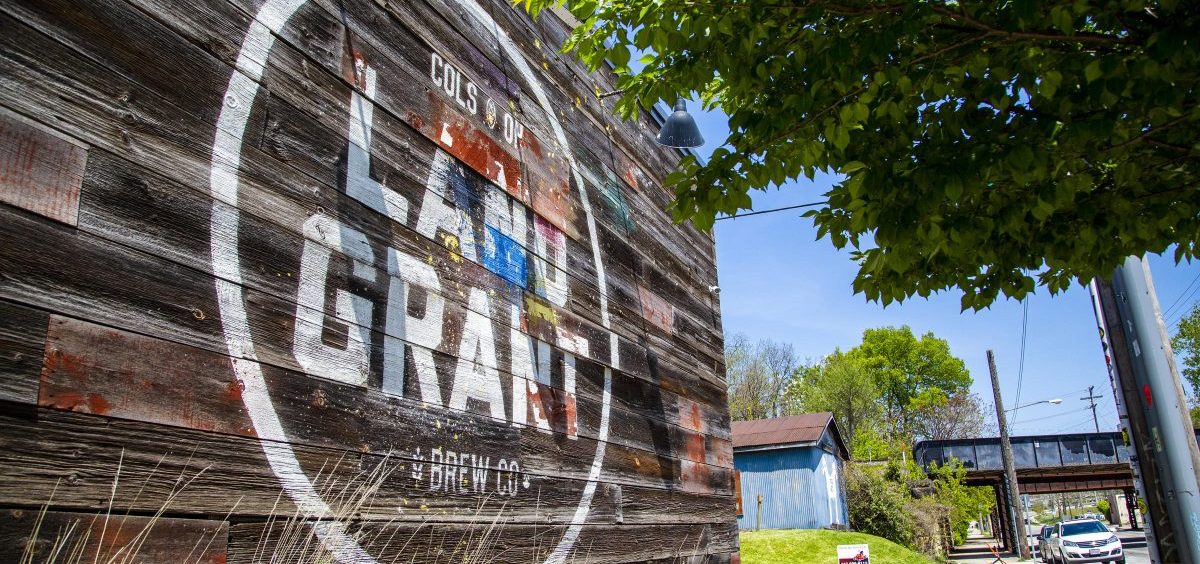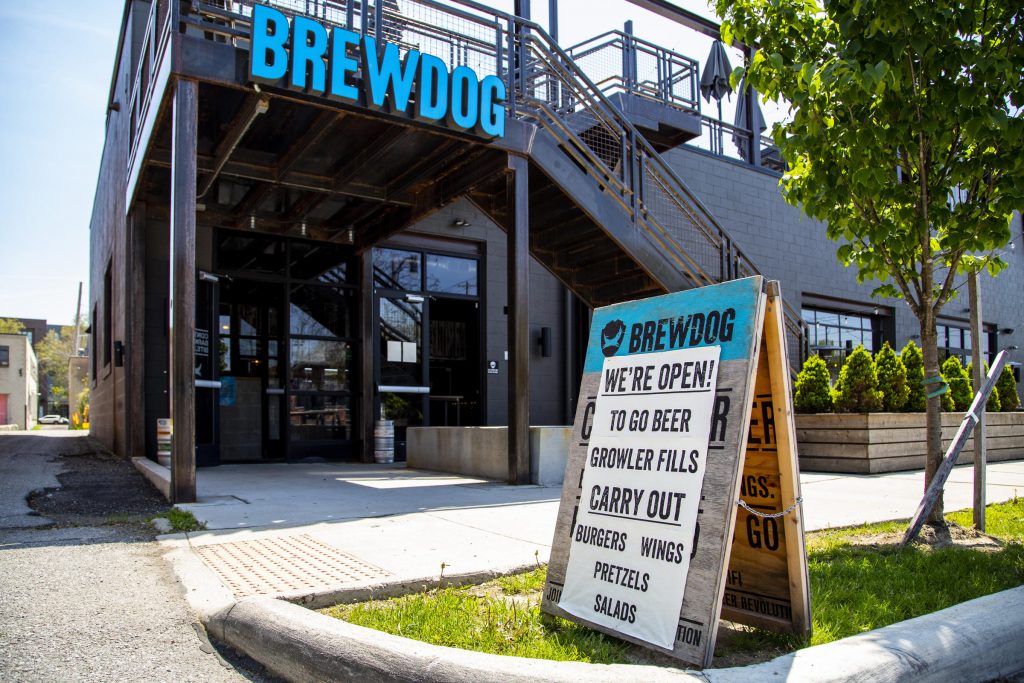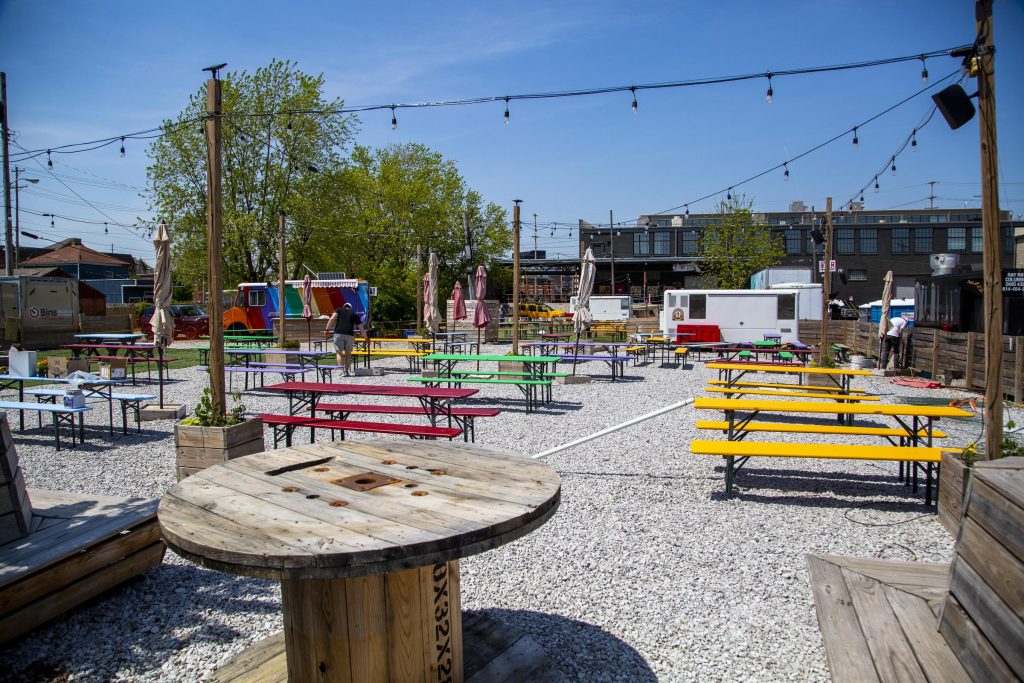News

Craft Brewers Statewide Scrape By With Creative Solutions
By: Leticia Wiggins | WOSU
Posted on:
COLUMBUS, Ohio (WOSU) — Though Ohio never closed down breweries, the COVID-19 pandemic has touched nearly all sides of the beer industry.
According to a recent survey, 99% of brewers nationally say they’ve impacted by COVID-19. Those with taprooms, the most profitable and sustainable source of revenue, had to shutter them.
Sixty percent of brewers say they’ve slowed production, and 28% stopped altogether. On average, brewers saw sales drop by 60%, and most anticipated layoffs of some sort.
“The pandemic’s really taken a huge financial hit on breweries,” says Justin Hemminger, deputy director of the Ohio Craft Brewers Association. “They’ve become these community gathering places, and right now gathering is not in the best interest of public health. So, you have to pivot and figure out how to ride it out.”
In 2019, Ohio ranked the sixth-largest producer of craft beer in the nation. That year, Hemminger told WOSU that the number of craft breweries in the state had grown over 500% in the past five years.
Nobody was expecting a pandemic to hit the brakes on that growth. Luckily, Hemminger says micro-breweries are adaptive by nature.

When the orders from the Ohio Department of Health came to close their taprooms, Seventh Son acted fast, pushing for carryout and delivery options. Pivoting allowed them to keep on 15 front-of-house staff as retail carryout workers and delivery drivers.
Castore says treating sales a “bit like public radio,” with gifts awarded at certain purchase levels, also helped, as did a loan from the Small Business Administration.
Though the response to the carryout and delivery options were positive, the earnings just aren’t the same.
“When I sell a can of beer and a six pack to a distributor or a wholesale restaurant account, I get about $1 for that can of beer,” Castore says. “When I can home deliver it to somebody, I get about $2… But when I sell it across the bar, I get $6.”
Close to 100 breweries throughout Ohio are offering home delivery in light of the current crisis, according to the OCBA, made possible by some relaxed regulations. Early on, the OCBA worked with the Ohio Division of Liquor Control to make an emergency rule that allowed breweries with packaging capabilities to package beers for breweries without that capacity.
Even for those with canning facilities, there’s the new question of what type of beer to produce. Brewers don’t know what type of beers will be in-demand in the future, or how fast they’ll move. Breweries need to decide whether to keep making IPAs best consumed within a month or two, or focus efforts on beers like lagers that last on the shelves but have a longer production cycle.
Hemminger also said it’s been difficult for some breweries to simply locate the cans themselves. He says the supply and demand chain is no longer predictable.
With unknowns in every corner of the industry, from the production side, uncertainty won’t go away as the state reopens.
“No one really knows what business is going to be like for the next month, two months, three months,” Hemminger says.
Since May 15, bars have been allowed to open their doors as long as they abide by certain health guidelines, and patios could welcome customers a week earlier.
At Seventh Son, the taproom is opened back up, but things look different. There are no bar stools so customers can safely line up to order. Half the tables have been removed to achieve the recommended 6-foot distance between customers.

“We took some extra time to implement some additional procedures for ourselves, a little above and beyond the requirements,” Benner says.
Benner also recently created a program for customers to pay for their beer by placing an order online. Customers get a QR code that they bring up to the bar for the bartender to scan – no exchange of card or money needed.
“Really, the only exchange is the bartender handing the beer,” Benner says.
Benner admits Land Grant was in a good position for the new conditions, with a large outdoor space that gives patrons plenty of room to stay apart.
For breweries without such ample patios, like Castore, they’re pushing for the Ohio legislature to pass HB 666, which allows the extension of patio seating into parking lots and public grounds, as well as third-party delivery of alcohol.
In many ways, breweries are like other businesses during these times.
“Some will do better than others,” Hemminger says.
Up to this point, out of the 336 breweries in Ohio, Hemminger says he’s only heard of two breweries closing during the pandemic.
“We see more breweries open than close, which is what was most surprising,” Hemminger says.
In the past month, Ohio’s Division of Liquor Control issued four new brewery permits.
“Breweries are almost always started by someone with an entrepreneurial spirit. Someone who loves to brew beer, loves to drink beer, loves to give back to the community,” Hemminger says. “Once you start that plan in motion… You don’t let something like a worldwide pandemic stop you.”

